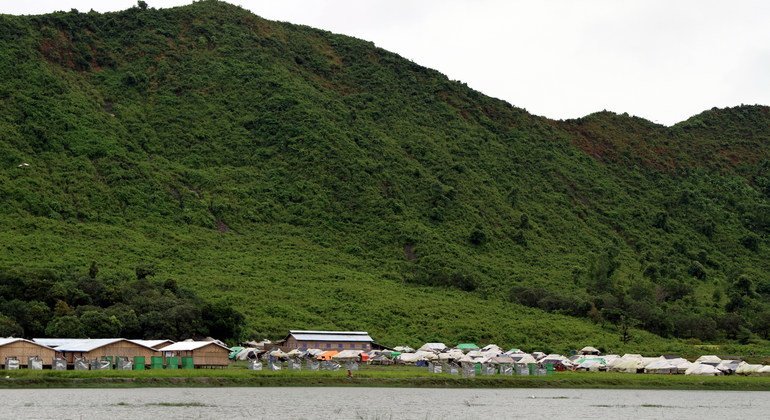Since the February 2021 coup in Myanmar, the country has been plunged into a state of chaos and violence. Over 5,000 civilians have lost their lives, and more than three million people have been displaced from their homes. The military junta, which seized power in the coup, has also imprisoned over 20,000 political prisoners, stifling dissent and opposition.
As the junta continues its brutal crackdown on civilians, military airstrikes on civilian targets have increased five-fold in the last six months. Despite this, the resistance forces have been able to push back against the junta, capturing military outposts, territory, and troops.
In a new report by Tom Andrews, the UN Special Rapporteur on Myanmar, it was revealed that 16 banks in seven countries have processed transactions linked to the junta’s military procurement over the past two years. Additionally, 25 banks provided correspondent banking services to Myanmar’s state-owned banks under junta control.
Andrews emphasized the critical role that financial institutions play in enabling the junta’s deadly transactions. He called on these institutions to take their human rights obligations seriously and not facilitate the junta’s actions, which are leading to widespread human rights abuses in Myanmar.
The report highlighted the risk that banks involved with Myanmar’s state-owned banks face in enabling military attacks on civilians. It stressed the fundamental obligation of these banks to avoid facilitating crimes, including war crimes and crimes against humanity.
Despite some positive developments, such as a decline in the Myanmar military’s annual procurement of weapons and military supplies through the formal banking system, Andrews warned that the junta continues to circumvent sanctions. The junta exploits gaps in the system, shifts financial institutions, and leverages inadequate coordination and enforcement among member states to continue its deadly actions.
While the junta may be increasingly isolated on the international stage, it is finding ways to evade sanctions and other measures designed to hold it accountable. Andrews pointed out that the failure of member states to fully coordinate and enforce actions against the junta is allowing it to continue its brutal crackdown on civilians.
The report also examined the role of two Association of Southeast Asian Nations (ASEAN) countries in the flow of weapons and military supplies to Myanmar. Singapore, which was identified last year as a significant source of weapons, saw a 90% drop in weapons flowing to Myanmar from Singapore-registered companies after the government investigated the entities involved.
However, military procurement through Thailand has increased significantly, with the junta importing nearly $130 million in weapons and military supplies from Thailand-registered suppliers in the year ending March 2024. Thai banks have played a crucial role in facilitating these transactions, with the Siam Commercial Bank alone facilitating over $5 million in transactions related to the Myanmar military.
The report, titled “Banking on the Death Trade: How Banks and Governments Enable the Military Junta in Myanmar,” underscored the need for stronger international cooperation and enforcement of sanctions to prevent financial institutions from enabling the junta’s deadly actions. It called on member states to coordinate their efforts and ensure that the junta is held accountable for its crimes against humanity and war crimes.
Overall, the situation in Myanmar remains dire, with civilians bearing the brunt of the junta’s brutal crackdown. The international community must take decisive action to cut off the junta’s financial lifelines and hold those responsible for human rights abuses accountable. Only then can the people of Myanmar hope to see an end to the violence and repression that have plagued their country since the coup.









